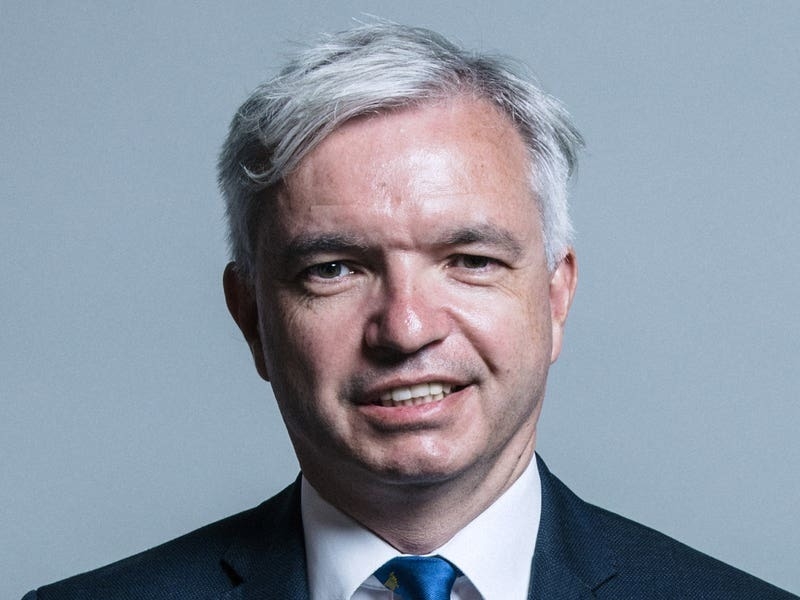Invited to the prison to give a motivational talk about his career, Mr Catley’s audience included one man who had broken his community service order, several men who were serving time for theft and at the other end of the scale, a convicted murderer.
The purpose of the talk was not to encourage the prisoners to take up boxing, but to galvanise them into making positive changes to their lives.
Bill Millar, governor of HMP La Moye, says speakers such as Mr Catley are regularly invited to the prison to give talks aimed at encouraging prisoners to approach the problems they face in life with a different mind-set.
‘We bring a number of speakers to the prison each year, including writers and poets – people who have something different to say – to try and encourage prisoners to look at alternative ways of living their lives and to motivate them to think differently,’ explains Mr Millar.
‘Someone like Glenn learned about self-discipline and focus through his sport.’
Since his retirement from the ring, Mr Catley – a qualified hypnotherapist and psychotherapist – has made a successful career out of delivering motivational talks across a large swathe of society, from businesspeople and sports people, to school children and, yes, prisoners.
His message to the prisoners was simple: work hard, focus and make better decisions. But rather than shower the prisoners with shallow platitudes, he shared his story of how he dealt with defeats and setbacks in and out of the ring to become a boxing champion.
Originally a sparring partner for WBO world middleweight and super middleweight champion Steve Collins, Mr Catley noted the positive impact that a hypnotherapist had made on Collins during his career. And after a tough loss in the ring to a Hungarian called András Gálfi, Mr Catley explained how he also decided to seek out the services of a cognitive behavioural therapist.
‘I was clinically depressed,’ he told the prisoners. ‘Some days I didn’t get up, didn’t even wash. I felt like I had let everyone down and I thought my career was finished.
‘So I picked up the Yellow Pages and made one phone call to a guy called David Newton, who is one of the most respected hypnotherapy practitioners in the UK. I told him I had no knowledge of what this hypnotherapy stuff was about, but I thought it might help me because I know it helped Steve.
‘It turned out that using a professional therapist was the best decision I ever made.’
He added: ‘One of the biggest gremlins in my mind was thinking I would run out of steam during a boxing match. But once I understood how the brain worked I could eliminate that negative mind-set.’
Hypnotherapy is not available at HMP La Moye, but the prison does take a holistic approach in its efforts to rehabilitate offenders.
Mr Millar says the prison has its own psychology team and that prisoners are free to enrol on recognised, accredited courses designed to encourage them to adjust their thinking to make better life choices.
‘We do offer cognitive behavioural change courses,’ he adds. ‘They tend to be focused on dealing with prisoners who have issues to do with violence, alcohol and substance abuse.
‘We also run a general Thinking Skills course, which is about helping prisoners think ahead and to better manage different situations.’
When addressing a room full of prisoners, the temptation must surely be to present yourself as a supremely confident, hard-nosed individual – woe betide the man who shows any sign of weakness.
However, Mr Catley – who met his future wife Kelly in Jersey during a boxing training session in the Island – was prepared to challenge the stereotype that grown men never cry by alluding to his softer side as a husband and father.
Indeed, he told them how, after losing a fight in controversial circumstances – the national press branded the judges’ scoring of the bout a travesty – he wept at the foot of his three-month-old son’s cot.
‘It was like I had won the lottery and someone had stolen my ticket. That night I went to my son’s cot, got down on my knees and started crying – the tears just flowed,’ he admitted to the prisoners.
As the central character Tim Robbins famously remarks in the prison film The Shawshank Redemption, ‘Hope is a good thing’, and it is clear that much of Mr Catley’s talk was designed to give the men a belief in better things to come – as long as they embrace an honest work ethic when they eventually leave the confines of HMP La Moye.
To that end, he explained how in the space of 11 days during a difficult spell in his boxing career, he went from working as a security guard for a newsagents in his home town of Bristol – ‘I had to kick out kids for stealing cans of Tango and used to wear a cap low over my head so people wouldn’t recognise me because I was so embarrassed’ – to competing for a boxing title once more.
Mr Catley also told them that he had been ‘written off’ on numerous occasions as a spent force before big boxing bouts, including when he faced Canadian Markus Beyer for the WBC World Super Middleweight title, in May 2000 in Frankfurt.
‘My vision for the fight was appearing at the after-party with my kids, my wife and my world title belt,’ he added.
‘And because I trained my mind and body hard – life’s all about applying yourself and there’s no substitute for a good work ethic – I was ready to embrace success.’
He showed the prisoners the Sky Sports footage of his attritional 12th-round victory over Beyer, before projecting onto the screen a photograph taken of him at the post-match after-party, holding his children aloft while wearing the world title belt around his waist and his wife at his side.
‘If you are truly content in life then success isn’t too far away,’ he told the prisoners. ‘Most things in life are free and certainly the best things in life are free.’
Mr Catley says that the purpose of his talk was not to make boxing champions out of the prisoners, but to help them realise that there are no shortcuts to success in life.
‘They can’t all be boxing champions, but they can train like champions, and develop a champion’s direction in life and focus.’
Gary Simkiss, a prison officer at HMP La Moye who used to oversee the sparring sessions between Mr Catley and Steve Collins when they trained in Jersey at Leonis Amateur Boxing Club, adds: ‘The guys who are in prison are here because they have been making the wrong decisions in life.
‘If they can start making the right decisions, that’s what it is all about.
‘When they are in their cells at night they will all have dark moments from time to time, but talks like these from an inspirational person like Glenn encourages them to be as positive as possible. It’s about being a good person and to make better decisions in life.’
Mr Catley, who was due to address the prison’s female population in the afternoon, rounded off his talk by telling the prisoners: ‘I’m just a short, fat bloke from Bristol and I managed to do this’… and with impeccable timing, he produced the spoils of his toil – his boxing belts.
He then invited the prisoners up to the front of the room to have their picture taken alongside himself and his world-title belts, and they all stepped forward without hesitation.
It was a strong indication that the words he had imparted had left an indelible impression on the minds of his captive – but unquestionably captivated – audience.
‘If we had said to them that someone was coming along to talk about mental health, we’d have had one or two prisoners want to attend the talk at best,’ admits Ross Allan, a physical education manager at the prison.
‘Today we had 15 attend Glenn’s talk and they were eager to listen, which is great.’
Mr Simkiss concurs. ‘Some of these men can’t even sit still for two minutes, but here today they have happily listened to Glenn for two hours.’
The governor was not surprised by how positively Mr Catley’s talk was received by the prisoners.
‘We had Glenn here a few years ago and the prison population responded well to him then,’ adds Mr Millar. ‘And in general we get a very good response from prisoners here – they participate in every aspect of the regime.
‘There’s a high level of engagement in the gym, in drama sessions and educational training – roughly 65 per cent of the prison population are engaged in educational courses.
‘For that percentage of the prison population to engage in things they wouldn’t normally engage with in the community is very good.
‘First and foremost we have the job of ensuring that prisoners serve their time in custody and serve out their sentences for the crimes they have committed. It is also about bringing about change in their behaviour.
‘We run all of the activities at the prison to try to prepare individuals for release back into the community so they can make a positive contribution to society and don’t go back to a life of crime.’






